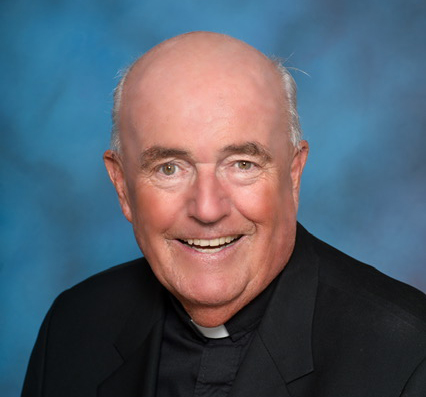
CORONA — Msgr. John Bracken likes to describe himself as a cheerleader for Catholic Charities Brooklyn & Queens (CCBQ) and said he is always eager to speak about the wide range of programs it offers to people in need.
This year, as CCBQ marks its 125th anniversary, his efforts to promote the nonprofit organization have been kicked up a notch.
CCBQ, which was founded in 1899, is planning a number of events to celebrate the 125th anniversary, including a gala dinner in the fall. But the organization is also determined to use the anniversary year to spread public awareness of the programs it offers.
As part of that effort, CCBQ has launched a new mental health initiative. And that’s where Msgr. Bracken comes in.
Msgr. Bracken, director of patrimony for the Diocese of Brooklyn, is the chairman of CCBQ’s anniversary committee and is helping to launch the new mental health initiative.
Msgr. Bracken said he will be reaching out to pastors around the diocese to let them know that CCBQ stands ready, willing, and able to provide mental health services for their parishioners.
“I see what I’m doing as being a cheerleader for Catholic Charities and making the pastors, parish priests, and others who are involved in local parish work aware of the many opportunities that they have to reach out and get the professional help, advice, and counsel their parishioners need — especially in the areas of mental health, seniors, and drug addiction,” he explained.
As part of the initiative, CCBQ has posted a Mental Well-Being video series on its website, www.ccbq.org, explaining the signs to look out for in someone in distress, and ways to help.
One of the videos focuses on mental well-being for children and features Program Director Zory Wentt explaining how to help kids.
CCBQ operates five centers in Brooklyn and Queens (Corona, Flatbush, Glendale, Jamaica, and Rockaway) where children and adults can find help. The clinics provide counseling, substance abuse recovery programs, and other forms of assistance.
Albert G. (The Tablet is printing only the first initial of his last name to protect his privacy) said he has been coming to one of the centers, Corona Personalized Recovery Services (PROS) for the past few years for group therapy to help him deal with borderline personality disorder.
He started visiting during the pandemic. “During the quarantine, I wasn’t doing anything. I had been in a program before that and it was over Zoom. But I needed something in person and it didn’t seem like there was anything in person,” he said.
“I was pretty much on my own at home. My symptoms were getting worse. I wasn’t really taking care of my mental state as much as I should have,” he added.
Albert G., who was raised Catholic but said he is not a regular church-goer, heard about CCBQ and started attending therapy sessions at the Corona clinic. He feels the sessions have greatly benefited him.
“They have a welcoming staff. But it’s also all my peers here. I need to be around peers who are dealing with the same issues as me,” he explained.
In addition to the therapy sessions, Albert G. said he appreciates the sense of structure CCBQ has brought to his life. He works with an individual case manager who meets with him regularly to set goals and discuss his progress. “Here and there, I’ve had doubts about myself. But I’ve stuck with it,” he added.
According to the National Institute of Mental Health, an estimated 20% of adults are dealing with some type of mental health issue, the most common of which is depression. According to Mental Health America, an estimated 21 million adults in the U.S. are affected by major depression each year.
CCBQ is filling an important need, Msgr. Bracken said. “Looking at these issues with young people, some of the statistics about them, like suicide rates, today. Then there’s also big addiction issues. And there’s also senior citizens’ loneliness. We live in the largest city in the world and we have people feeling isolated,” he said.
Even with all its services, CCBQ is always looking to do more, Msgr. Bracken said.
“How do we touch those people and how can a parish be able to be much more supportive than they already are?” he added.
